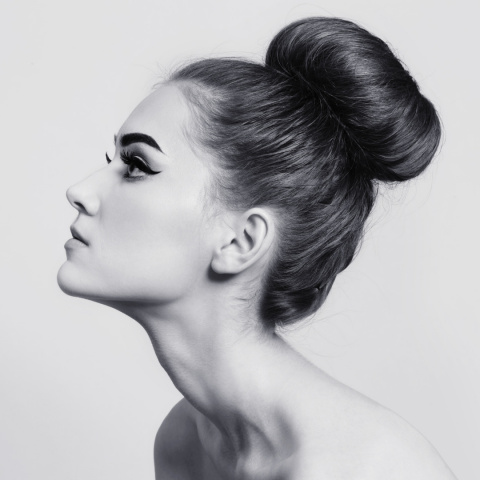We shampoo, dry, and style our hair without giving much thought to how certain habits can affect our shining crown of glory. But how nice our tresses look depends upon what we eat, our lifestyle, and how we treat our hair. And there are some myths still circulating today regarding hair health that can do more harm than good.
If you’d like to be doing all you can to keep you and your clients’ hair abundant, shiny, and nourished, read on. Here are six surprising facts about hair health that is surprising to people—share these facts with your clients the next time they visit your salon suite for a service.
1. Less is More When it Comes to Brushing: Your mother or grandmother may have grown up with the belief that they needed to brush their hair every day for at least 100 strokes to keep it shiny and their scalp stimulated. But this kind of obsessive brushing and combing can actually damage hair and lead to breakage—something that no one wants.
Always treat hair with a gentle touch. You can run a brush through it to untangle it, make it look more presentable, and to distribute natural oils from the scalp into the strands, but it’s unnecessary to keep at it beyond that.
2. What You Eat Promotes Hair Growth: Feeding your body with the right foods affects your hair. Even though hair is technically “dead” once it exits your scalp, it needs protein and other nutrients to be strong.
Foods that contain protein, biotin, and antioxidants contribute to hair composition. Choose foods that contain zinc, omega-3 fatty acids, vitamin C, and selenium. Salmon, oysters, sweet potatoes, avocados, nuts, and meat can all strengthen hair, encourage growth, and fight off free radicals in the environment.
3. Sleep is Essential to Healthy Hair: Getting a good night’s sleep affects how we feel and perform during the day—and it also affects our hair. People who are sleep deprived often have lower levels of human growth hormone (HGH). A decline in HGH has been linked to thinning hair and hair loss, not counting male pattern baldness which is generic.
Stress, anxiety, and worrying can also disrupt hormone levels that can cause hair to fall out and prevent us from sleeping soundly, which doesn’t help our hair health. These sleeping tips will help you get the recommended seven to nine hours of sleep you need each night.
4. Scalp Massage Encourages Hair Growth: While excessive brushing isn’t good for our hair, a gentle scalp massage increases circulation in the area which promotes hair growth. It’s also a great stress reliever and something you can do for your clients the next time you shampoo their hair. Using the pads of your fingertips, gently massage the scalp using circular motions.
5. Wet Hair is More Delicate: Healthy hair can stretch by as much as 30% when wet, which is why you need to handle freshly washed hair with care. Always use a wide-toothed comb to detangle wet hair and never go to bed with wet hair, as it can be more prone to breakage if you move your head around while sleeping.
6. Prescription Medicine Can Affect Hair Health: Certain medications can cause hair to thin, fall out, or become dry. It’s important to read about all potential side effects your medication comes with and discuss any issues you’re experiencing with your hair while taking them with your doctor.
Taking care of one’s hair is just as vital as taking care of your body, skin, and teeth. Hair depends upon what we feed it and how we handle it to stay healthy and complement our look. To learn more about hair health that you can share with your clients, check out these five behaviors that can affect your hair.
Authored by Julie Ferrell
Julie Ferrell is a freelance writer originally hailing from Ohio (O-H!) but now calls North Carolina home. Julie enjoys writing on a number of topics but ultimately aims to help others enrich their lives by sharing personal experiences and practical advice.

